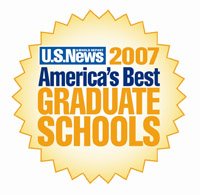Featured Law School Books Acing Your First Year of Law School: The Ten Steps to Success You Won't Learn in Class
Acing Your First Year of Law School: The Ten Steps to Success You Won't Learn in Class by Shana Connell Noyes (Author), Henry S. Noyes (Author), CDN$ 21.95
From the PublisherLaw school attendance continues to rise each year. As more and more students enter law school, it becomes even harder to stand out in the crowd of other students. This book will teach you how to stand head and shoulders above your colleagues in law school, and succeed in your most critical year of law school, the first year.
Product Description: Most first-year law students waste a tremendous amount of time learning piles of information they don't need to know, because they have no one to guide them. This text, in ten easy-to read chapters, is the guide for students entering or contemplating law school. After reading the ten chapters, set up as lessons, student will know how to study the law.
 Getting to Maybe: How to Excel on Law School Exams
Getting to Maybe: How to Excel on Law School Exams by Richard Michael Fischl (Author), Jeremy Paul (Author), CDN$ 19.51
Professors Fischl and Paul explain law school exams in ways no one has before, all with an eye toward improving the reader's performance. The book begins by describing the difference between educational cultures that praise students for "right answers," and the law school culture that rewards nuanced analysis of ambiguous situations in which more than one approach may be correct. Enormous care is devoted to explaining precisely how and why legal analysis frequently produces such perplexing situations. But the authors don't stop with mere description. Instead, Getting to Maybe teaches how to excel on law school exams by showing the reader how legal analysis can
be brought to bear on examination problems. The book contains hints on studying and preparation that go well beyond conventional advice. The authors also illustrate how to argue both sides of a legal issue without appearing wishy-washy or indecisive. Above all, the book explains why exam questions may generate feelings of uncertainty or
doubt about correct legal outcomes and how the student can turn these feelings to his or her advantage. In sum, although the authors believe that no exam guide can substitute for a firm grasp of substantive material, readers who devote the necessary time to learning the law will find this book an invaluable guide to translating learning into better exam performance.
 Law School For Dummies
Law School For Dummies by Rebecca Fae Greene (Author), CDN$ 20.29
The straightforward guide to surviving and thriving in law school.
Every year more than 40,000 students enter law school and at any given moment there are over 125,000 law school students in the United States. Law school’s highly pressurized, super-competitive atmosphere often leaves students stressed out and confused, especially in their first year. Balancing life and schoolwork, passing the bar, and landing a job are challenges that students often need help facing. In Law School For Dummies, former law school student Rebecca Fae Greene uses straight talk, sound advice, and gentle humor to help students sort through the swamp of coursework and focus on what’s important–all while maintaining a life. She also offers rare insight on the law school experience for women, minorities, non-traditional, and non-Ivy League students.
 Law School Confidential: A Complete Guide to the Law School Experience: By Students, for Students
Law School Confidential: A Complete Guide to the Law School Experience: By Students, for Students by Robert H. Miller (Author), CDN$ 18.17
I wish I knew then what I know now! Don't get to the end of your law school career muttering these words to yourself! Take the first step toward building a productive, successful, and perhaps even pleasant law school experience...read this book! Written for students about to embark on this three year odyssey, by students who have successfully
survived law school. Law School Confidential demystifies the life-altering thrill ride that defines an American legal education by providing a comprehensive, blow-by-blow, chronological account of what to expect. Law School Confidential arms students with a thorough overview of the contemporary law school experience. This isn't the advice of graying professors or battle-scarred practitioners decades removed from the law school. Fresh out of University of Pennsylvania Law School, Robert Miller has assembled a panel of recent law school graduates all of whom are perfectly positioned to shed light on what law school is like today. Law School Confidential invites you to walk in their steps to success and to learn from their mistakes. From taking the LSAT, to securing financial aid, to navigating the notorious first semester, to exam-taking strategies, to applying for summer internships, to getting on the law review, to tackling the bar and beyond...Law School Confidential explains it all.
 The Practice of Law School: Getting in and Making the Most of Your Legal Education
The Practice of Law School: Getting in and Making the Most of Your Legal Education by Esq.,, Christen Civiletto Carey (Author), CDN$ 26.57
This handbook for aspiring lawyers coaches them to make the most of law school by taking charge of their education and burgeoning careers early on. It provides current and future law students with invaluable information about the law school application process, financing law school, selecting classes, evaluating study groups, developing effective exam-taking strategies, choosing extracurricular activities and summer jobs, preparing for the bar exam, and balancing school with family life. Demonstrated are the ways in which students can begin to think like practicing lawyers and attain experience in law school that is relevant, practical, and essential to practicing law in the real world.
 Starting Off Right in Law School
Starting Off Right in Law School by Carolyn Nygren (Author), CDN$ 15.83
The result of eight years of Nygren's work with first-semester students in five different law schools, this book melds information about the legal system usually found in legal methods books with information about study skills
usually found in books with a "how to succeed in law school" focus. The book uses one area of law — the implied warranty of merchantability as it applies to food — to illustrate various legal issues and the skills needed to master them. It introduces basic legal concepts and vocabulary in the context of one hypothetical case, and then focuses on the structure of cases and types of reasoning courts use. When finished with the book, readers will have the background they need in order to demonstrate a thorough knowledge of legal materials.
 One L: The Turbulent True Story of a First Year at Harvard Law School
One L: The Turbulent True Story of a First Year at Harvard Law School by Scott Turow (Author), CDN$ 15.96
One L, Scott Turow's journal of his first year at law school introduces and a best-seller when it was first published
in 1977, has gone on to become a virtual bible for prospective law students. Not only does it introduce with remarkable clarity the ideas and issues that are the stuff of legal education; it brings alive the anxiety and competiveness--with others and, even more, with oneself--that set the tone in this crucible of character building.
Turow's multidimensional delving into his protagonists' psyches and his marvelous gift for suspense prefigure the achievements of his celebrated first novel, Presumed Innocent, one of the best-selling and most talked about books of 1987. Each September, a new crop of students enter Harvard Law School to begin an intense, often grueling, sometimes harrowing year of introduction to the law. Turow's group of One Ls are fresh, bright, ambitious, and more than a little daunting. Even more impressive are the faculty: Perini, the dazzling, combative professor of contracts, who presents himself as the students' antagonist in their struggle to master his subject; Zechman, the reserved professor of torts who seems so indecisive the students fear he cannot teach; and Nicky Morris, a young, appealing man who stressed the humanistic aspects of law. Will the One Ls survive? Will they excel? Will they make the Law Review, the outward and visible sign of success in this ultra-conservative microcosm? With remarkable insight into both his fellows and himself, Turow leads us through the ups and downs, the small triumphs and tragedies of the year, in an absorbing and throught-provoking narrative that teaches the reader not only about law school and the law but about the human beings who make them what they are. In the new afterword for this edition of One L, the author looks back on law school from the perspective of ten years' work as a lawyer and offers some suggestions for reforming legal education.
 1000 Days to the Bar: But the Practice of Law Begins Now
1000 Days to the Bar: But the Practice of Law Begins Now by Dennis J. Tonsing (Author), CDN$ 21.36
1000 Days to the Bar explains the relationship between the professional practice of law and the practice you need to perform each week to achieve your objectives. This unique guide is designed to empower first-year law students by presenting the components for academic success in a step-by-step format that lays out a practice-centered approach to legal studies. In this book you will discover how to: - Read and brief court opinions - Take and transform class notes into course summaries, outlines and flow charts. - Learn essential elements of the law "by heart." - Gain fluency in the "language of the law." Special supplements include: - Study tips from law school professors and academic support professionals. - Detailed descriptions of many of the most popular commercial study aids. - Time management details and time allocation methods, including creation of a personal Flexible Time Resource Allocation Chart. - Guidelines for powerful, effective study groups. - Instructions for preparing a practical and efficient law study environment.






 Usually I do not post about specific events that happen in my classes, but today I'll make an exception. My point today is this: when the professor calls on a student to brief a case, the range of acceptable responses does not include "Oh, I read the case, but it was a few days ago and I don't remember it very well, but let's see . . . ."
Usually I do not post about specific events that happen in my classes, but today I'll make an exception. My point today is this: when the professor calls on a student to brief a case, the range of acceptable responses does not include "Oh, I read the case, but it was a few days ago and I don't remember it very well, but let's see . . . ."



